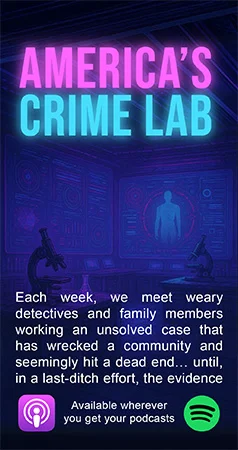K_Z
Verified Anesthetist
- Joined
- Nov 8, 2010
- Messages
- 6,657
- Reaction score
- 2,507
Mack Beggs is a transgender boy (biological girl transitioning to male). As part of the transition from female to male, Mack takes testosterone, which is considered a Performance Enhancing Drug (PED) under many sports regulations. Mack wanted to compete in wrestling as a male, but the UIF (University Interscholastic League) ruled that Mack must compete as a female.
http://www.msn.com/en-us/sports/mor...ling-title-i-dont-cheat/ar-AAnONLD?li=BBnb7Kz
http://www.usatoday.com/story/sport...hool-wrestling-trump-administration/98592436/
https://www.washingtonpost.com/spor...a3817ac21a5_story.html?utm_term=.b35177c221d2
*This is a very comprehensive article ^^, but here are a few snips:
More discussion:
http://www.espn.com/espnw/voices/ar...stler-mack-beggs-access-sports-trans-athletes
It's an interesting conundrum. Mack was a "good" wrestler before the testosterone, but became markedly "better" and stronger after beginning testosterone.
What do WS's think about this?
Should Mack have been allowed to compete as a female, while taking testosterone?
Should Mack, a biological female transitioning to male, have been allowed to wrestle and compete as a male?
Or do you think the UIF made the correct decision, and required a female to male trangender athlete taking testosterone to compete as a female?
Should Mack have been declared ineligible to wrestle at all, as a male or female, because of taking exogenous testosterone?
Is Mack's win "legitimate"? Is it fair?
Should the rules be different at the high school state level, versus university, professional sport, and Olympic level?
Asked if he was taking the amount of testosterone he wanted while transitioning to male, Beggs said he was "holding back because of wrestling."
"I want to do it fairly," he said. "I don't want to cheat. That's not something I do. I don't cheat."
The 17-year-old Beggs won the 110-pound girls title as a junior at Euless Trinity High School in the Dallas-Fort Worth area. He could face a legal challenge during his senior wrestling season.
University Interscholastic League rules allow Beggs to compete while taking testosterone, but school superintendents and athletic directors voted overwhelmingly last year on the gender requirement.
"We asked them is it OK if this transgender, this trans male were to take testosterone while transitioning and that's what we got, 'They can take it, but they can only compete on what's on their birth certificate,'" Beggs said. "That's when we were like, 'Well, then, there goes us asking if I can compete on the males.'"
Jim Baudhuin, an attorney and Dallas-area wrestling parent, has filed a lawsuit seeking to keep Beggs from competing against girls. The lawsuit mostly takes aim at the UIL for allowing Beggs to face girls while on testosterone.
http://www.msn.com/en-us/sports/mor...ling-title-i-dont-cheat/ar-AAnONLD?li=BBnb7Kz
http://www.usatoday.com/story/sport...hool-wrestling-trump-administration/98592436/
The provisions issued under the Obama administration were not legally binding, but they provided a blueprint for schools to follow to avoid violations of Title IX, a federal law banning sex discrimination in public and private educational institutions. Title IX has gained the greatest visibility for its impact on athletics in high schools and colleges, which must abide by Title IX regulations because they receive federal funding. The Obama administration interpreted Title IX as covering discrimination based on gender identity but a federal judge put the guidelines on hold in August because several states sued to challenge them.
https://www.washingtonpost.com/spor...a3817ac21a5_story.html?utm_term=.b35177c221d2
*This is a very comprehensive article ^^, but here are a few snips:
Two years ago, Mack Beggs began taking supplements to begin his physical transition. In the video, he predicted a complicated future regarding UIL rules but nonetheless declared that he wanted to go on participating in the sport he had fallen in love with. He began taking testosterone in 2015.
As time passed, attorney Baudhuin said, Beggs requested to wrestle against boys, though because UIL guidelines determine athletes gender based on their birth certificate, that request was declined (citing privacy, the UIL would not discuss that request or Beggss specific case); in a brief interview before the championship final, Nancy Beggs would not comment on whether her grandson hoped to eventually participate in the boys division.
Last year, coaches in the Dallas-Fort Worth area began hearing about changes in Beggss physique. He was strong and lean, and coaches noticed an unmistakable strength advantage that hadnt been there even a year earlier.
A few coaches and parents became concerned their girls wouldnt compete on equal terrain. Other coaches disagreed, more impressed by Beggss commitment to improvement and his mental preparation. Sides were established. Discussions became increasingly tense. Questions became more difficult to answer.
More discussion:
http://www.espn.com/espnw/voices/ar...stler-mack-beggs-access-sports-trans-athletes
It's an interesting conundrum. Mack was a "good" wrestler before the testosterone, but became markedly "better" and stronger after beginning testosterone.
What do WS's think about this?
Should Mack have been allowed to compete as a female, while taking testosterone?
Should Mack, a biological female transitioning to male, have been allowed to wrestle and compete as a male?
Or do you think the UIF made the correct decision, and required a female to male trangender athlete taking testosterone to compete as a female?
Should Mack have been declared ineligible to wrestle at all, as a male or female, because of taking exogenous testosterone?
Is Mack's win "legitimate"? Is it fair?
Should the rules be different at the high school state level, versus university, professional sport, and Olympic level?

